Dacia Jogger vs VW Passat - Differences and prices compared
Compare performance (140 HP vs 272 HP), boot space and price (15400 £ vs 36500 £) at a glance. Find out which car is the better choice for you – Dacia Jogger or VW Passat?
Costs and Efficiency:
Price and efficiency are key factors when choosing a car – and this is often where the real differences emerge.
Dacia Jogger has a decisively advantage in terms of price – it starts at 15400 £, while the VW Passat costs 36500 £. That’s a price difference of around 21042 £.
Fuel consumption also shows a difference: VW Passat manages with 1.20 L and is therefore decisively more efficient than the Dacia Jogger with 4.70 L. The difference is about 3.50 L per 100 km.
Engine and Performance:
Power, torque and acceleration say a lot about how a car feels on the road. This is where you see which model delivers more driving dynamics.
When it comes to engine power, the VW Passat has a convincingly edge – offering 272 HP compared to 140 HP. That’s roughly 132 HP more horsepower.
In acceleration from 0 to 100 km/h, the VW Passat is decisively quicker – completing the sprint in 5.80 s, while the Dacia Jogger takes 9.80 s. That’s about 4 s faster.
In terms of top speed, the VW Passat performs clearly perceptible better – reaching 250 km/h, while the Dacia Jogger tops out at 174 km/h. The difference is around 76 km/h.
There’s also a difference in torque: VW Passat pulls significantly stronger with 400 Nm compared to 200 Nm. That’s about 200 Nm difference.
Space and Everyday Use:
Beyond pure performance, interior space and usability matter most in daily life. This is where you see which car is more practical and versatile.
Seats: Dacia Jogger offers distinct more seating capacity – 7 vs 5.
In curb weight, Dacia Jogger is noticeable lighter – 1251 kg compared to 1573 kg. The difference is around 322 kg.
In terms of boot space, the VW Passat offers to a small extent more room – 690 L compared to 607 L. That’s a difference of about 83 L.
In maximum load capacity, the VW Passat performs minimal better – up to 1920 L, which is about 101 L more than the Dacia Jogger.
When it comes to payload, Dacia Jogger hardly perceptible takes the win – 582 kg compared to 577 kg. That’s a difference of about 5 kg.
Who wins the race?
The VW Passat proves to be outperforms in nearly all aspects and therefore becomes our DriveDuel Champion!
VW Passat is the better all-rounder in this comparison.
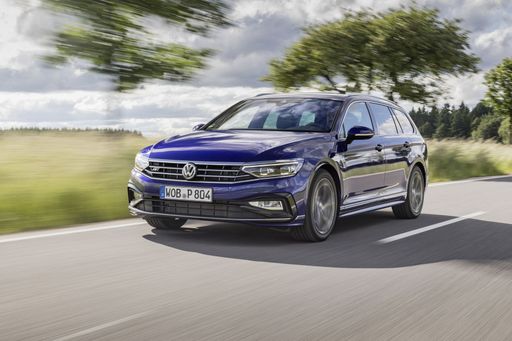
VW Passat
Costs and Consumption
View detailed analysis
Engine and Performance
View detailed analysis
Dimensions and Body
View detailed analysis
Dacia Jogger
The Dacia Jogger is a no-nonsense family mover that stretches the idea of value with cavernous practicality and flexible space, perfect for buyers who need a sensible, everyday Swiss Army knife on wheels. It doesn’t try to be glamorous — instead it wins hearts with cheerful thrift, durable materials and honest engineering, giving you useful transport without the pretence.
details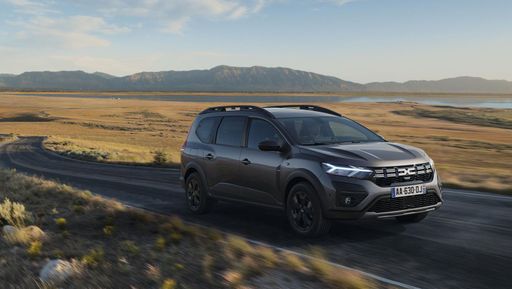
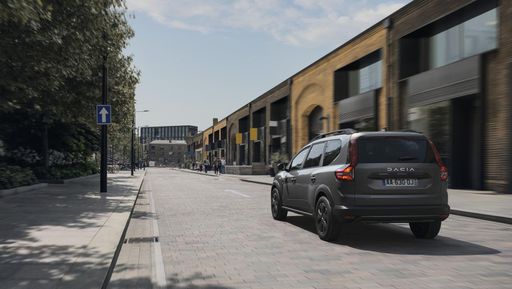
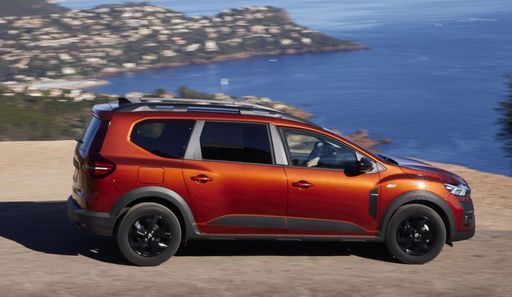
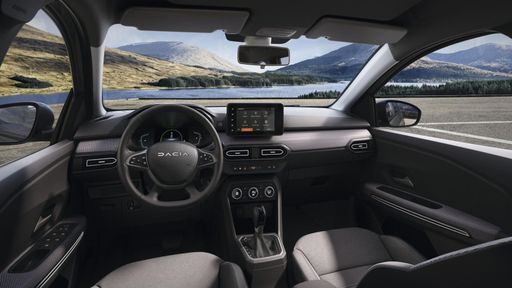
VW Passat
The VW Passat is the grown-up family car that gets the basics absolutely right — roomy, comfortable and built to handle weekday commutes and weekend getaways without fuss. It won't set your pulse racing, but its calm composure and sensible packaging make it boring in the best possible way: a dependable, no‑drama choice for buyers who value practicality over flash.
details
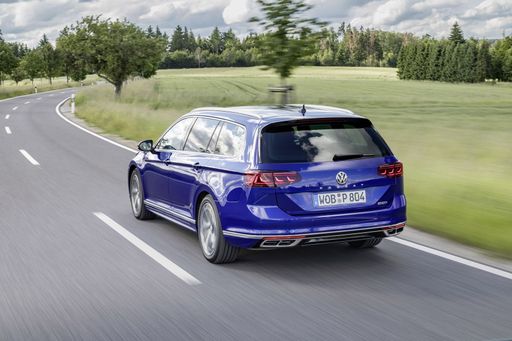
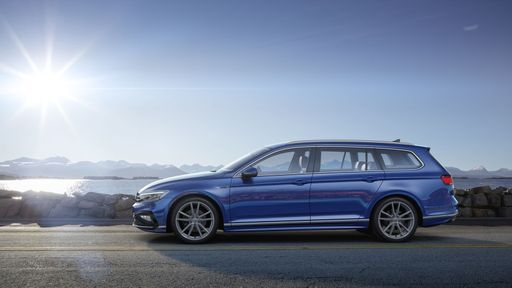
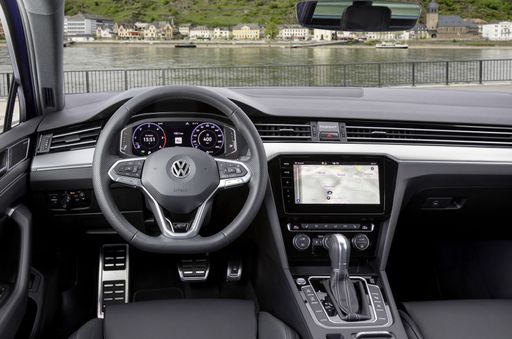
Costs and Consumption |
|
|---|---|
|
Price
15400 - 23400 £
|
Price
36500 - 58500 £
|
|
Consumption L/100km
4.7 - 7.8 L
|
Consumption L/100km
1.2 - 8 L
|
|
Consumption kWh/100km
-
|
Consumption kWh/100km
-
|
|
Electric Range
-
|
Electric Range
124 - 135 km
|
|
Battery Capacity
0.60 kWh
|
Battery Capacity
19.70 kWh
|
|
co2
105 - 137 g/km
|
co2
28 - 181 g/km
|
|
Fuel tank capacity
40 - 50 L
|
Fuel tank capacity
45 - 66 L
|
Dimensions and Body |
|
|---|---|
|
Body Type
MPV
|
Body Type
Estate
|
|
Seats
5 - 7
|
Seats
5
|
|
Doors
5
|
Doors
5
|
|
Curb weight
1251 - 1460 kg
|
Curb weight
1573 - 1858 kg
|
|
Trunk capacity
160 - 607 L
|
Trunk capacity
510 - 690 L
|
|
Length
4547 mm
|
Length
4917 mm
|
|
Width
1784 mm
|
Width
1849 mm
|
|
Height
1674 mm
|
Height
1521 mm
|
|
Max trunk capacity
1807 - 1819 L
|
Max trunk capacity
1770 - 1920 L
|
|
Payload
393 - 582 kg
|
Payload
501 - 577 kg
|
Engine and Performance |
|
|---|---|
|
Engine Type
Full Hybrid, LPG, Petrol
|
Engine Type
Petrol, Petrol MHEV, Diesel, Plugin Hybrid
|
|
Transmission
Automatic, Manuel
|
Transmission
Automatic
|
|
Transmission Detail
Automatic Gearbox, Manual Gearbox
|
Transmission Detail
Dual-Clutch Automatic
|
|
Drive Type
Front-Wheel Drive
|
Drive Type
All-Wheel Drive, Front-Wheel Drive
|
|
Power HP
91 - 140 HP
|
Power HP
122 - 272 HP
|
|
Acceleration 0-100km/h
9.8 - 13.2 s
|
Acceleration 0-100km/h
5.8 - 10.7 s
|
|
Max Speed
167 - 174 km/h
|
Max Speed
212 - 250 km/h
|
|
Torque
160 - 200 Nm
|
Torque
250 - 400 Nm
|
|
Number of Cylinders
3 - 4
|
Number of Cylinders
4
|
|
Power kW
67 - 103 kW
|
Power kW
90 - 200 kW
|
|
Engine capacity
999 - 1598 cm3
|
Engine capacity
1498 - 1984 cm3
|
General |
|
|---|---|
|
Model Year
2024 - 2025
|
Model Year
2024 - 2025
|
|
CO2 Efficiency Class
C, D
|
CO2 Efficiency Class
G, D, E, B
|
|
Brand
Dacia
|
Brand
VW
|
What drivetrain options does the Dacia Jogger have?
The Dacia Jogger is offered with Front-Wheel Drive.
The prices and data displayed are estimates based on German list prices and may vary by country. This information is not legally binding.




